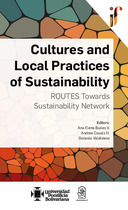Thomas More’s Utopia and Vasco de Quiroga’s Républica as Sustainable Habitats

View/
Date
2021Author
Spinozzi, Paola
xmlui.dri2xhtml.METS-1.0.item-type
bookPart
Citación
Metadata
Show full item recordDocuments PDF
Abstract
Societies have struggled with sustainability for centuries and the notion of sustainable society, widely debated nowadays, invites an investigation into the early modern age when social models were conceived. Utopia as a genre thrives on the assumption that human ingenuity can produce good habitats, in which every tangible and intangible aspect of existence is carefully planned. As an early modern expression of anthropocentrism, the genre exhibits the impact of utopian projects on the natural, human, and built environment. Thomas More, an Englishman born in London in 1478, and Vasco de Quiroga, a Spaniard born in Madrigal de las Altas Torres in 1470, envisioned ideal places based on their legal education, religious convictions, and political expertise.
ISBN
978-958-764-999-4
Keyword/s
Desarrollo sostenible
Medio ambiente
Collections
- Capítulos de libro [747]
The following license files are associated with this item:

